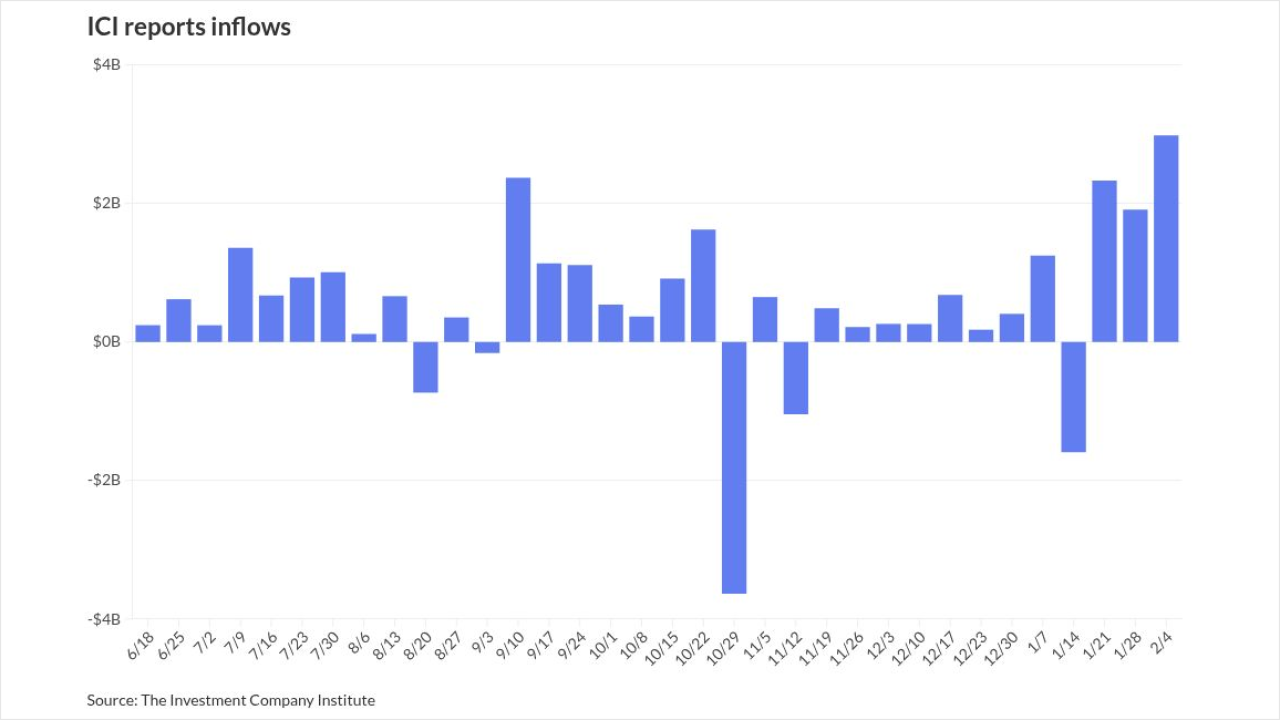WASHINGTON -- Congress faces an early-to-mid-October deadline to raise the debt limit, the Bipartisan Policy Center said on Wednesday, meaning it's possible Treasury won't resume the sale of state and local government series securities for municipal issuers until then.
The BPC's estimate was in line with the one announced late last month by the Congressional Budget Office.
The federal government has run an average cash deficit of $104 billion in October over the last five years, according to the BPC.
“Many of October’s monthly payments are front-loaded, leading to an increased risk of crossing the 'X Date' early in the month,’’ the BPC said. “In addition to recurring Social Security and Medicare payments, there is a large required payment to the Military Retirement Trust Fund on October 2, which was $81 billion last year.’’
The October deadline could mean that Congress has some breathing room to take its August recess and tackle the debt ceiling after Labor Day.
But Treasury Secretary Steve Mnuchin has urged Congress to raise the debt limit prior to its August recess.
And on Tuesday, Senate Majority Leader Mitch McConnell, R-Ky., said his chamber "ideally'' would vote before the recess begins in mid-August.
McConnell gave only a vague "we'll see'' in response to a question about whether the debt ceiling vote will be linked to spending cuts. “But the debt ceiling must be raised,'' he said.

The House has not yet scheduled a vote, but members of the conservative House Freedom Caucus have outlined several options they would support, including linking the debt ceiling vote to either a budget resolution that requires $250 billion in mandatory spending cuts or a repeal of the Affordable Care Act.
Another option involves passage of legislation introduced by Freedom Caucus member Rep. David Schweikert, R-Ariz. on July 6 that would create gross domestic product-linked Treasury bonds not subject to the debt limit that could be used to pay principal and interest on the public debt.
The bill also would authorize the president to rescind unobligated balances and sell mortgage-related assets.
Schweikert's bill, H.R. 3167, is cosponsored by Republican Reps. Trent Franks of Arizona, Mark Meadows of North Carolina and Jeff Fortenberry of Nebraska.
A spokeswoman for Schweikert described the bill as “quite short and self-explanatory.’’
“It’s not a solution to the immediate debt limit problem,’’ Shai Akabas, director of fiscal policy for the Bipartisan Policy Center, told reporters in response to a question about the bill during a conference call Wednesday. “It may be policies they want to pursue that they believe are in the long term fiscal interests of the U.S.’’
Akabas said that calling back unobligated balances from agencies "actually doesn’t affect the cash situation of the Treasury Department.’’
Treasury began a series of extraordinary actions on March 16 to avert reaching the debt limit that included a suspension of the sale of SLGS. Treasury generally sells between $5 billion and $12 billion of these special purpose securities each month, according to the CBO.
SLGS help municipal bond issuers avoid violating arbitrage rebate or yield restriction requirements. Issuers most often purchase SLGS for advance refunding escrows to ensure their investment yield will not significantly exceed the yield of their refunding bonds.
But the suspension of SLGS sales hasn't hurt muni issuers much in recent months because interest rates are so low, there is little likelihood that the rate on investments will exceed rate on the bonds, bond attorneys have said.
Treasury also has suspended contributions to the Civil Service Retirement and Disability Fund and the Postal Service Retiree Health Benefits Fund that are not immediately needed to pay beneficiaries. And it has stopped investments in the Government Securities Investment Fund (G Fund) of the Federal Employees' Retirement System.
CBO last month pointed to six extraordinary measures Treasury still has available to avoid breaching the debt ceiling.
Among them: suspending the investment of the Thrift Savings Plan’s G Fund which totaled $37 billion at the end of May and suspending investments by the Exchange Stabilization Fund which totaled $22 billion the same date. Other options include exchanging Federal Financing Bank securities which don’t count against the debt limit for Treasury securities held by the Civil Service Retirement and Disability Fund.
In addition, securities held by the Civil Service Retirement and Disability Fund and the Postal Service Retiree Health Benefits Fund could be redeemed early for the $8 billion in monthly benefits that must be paid in the near future.





